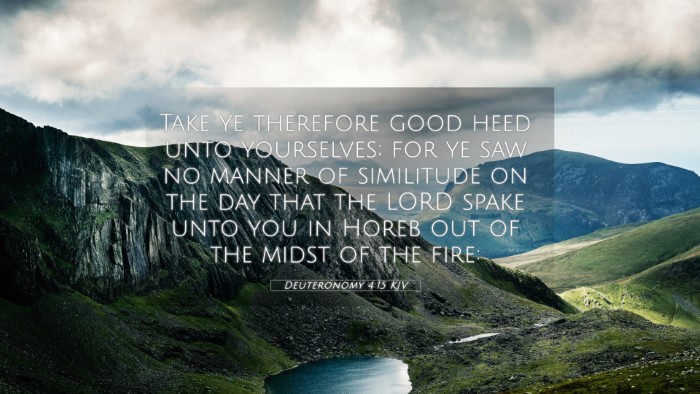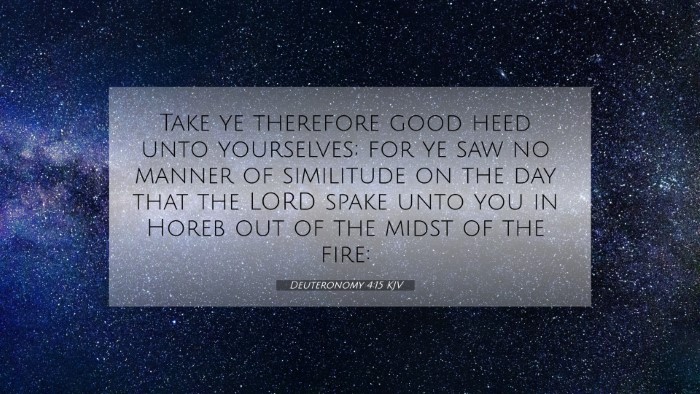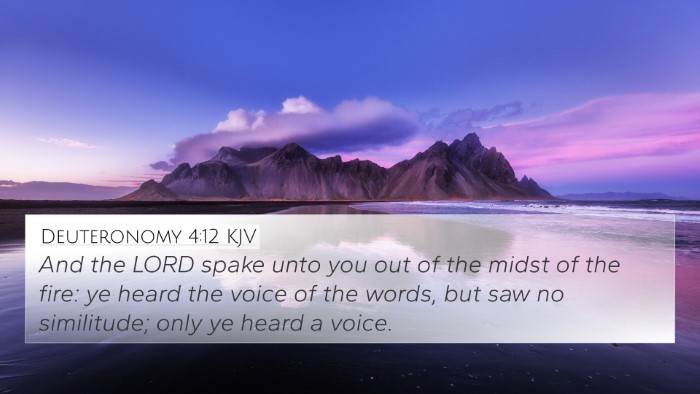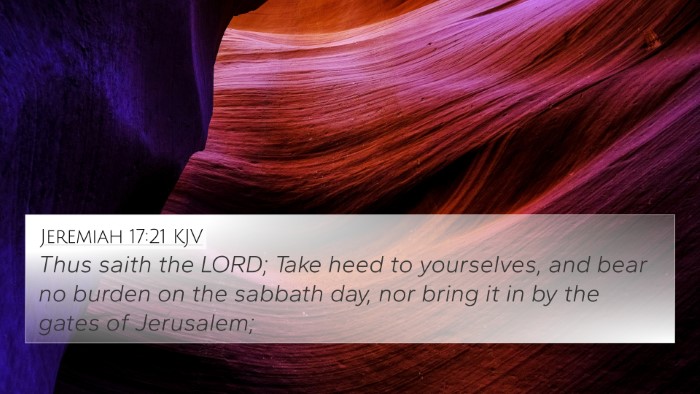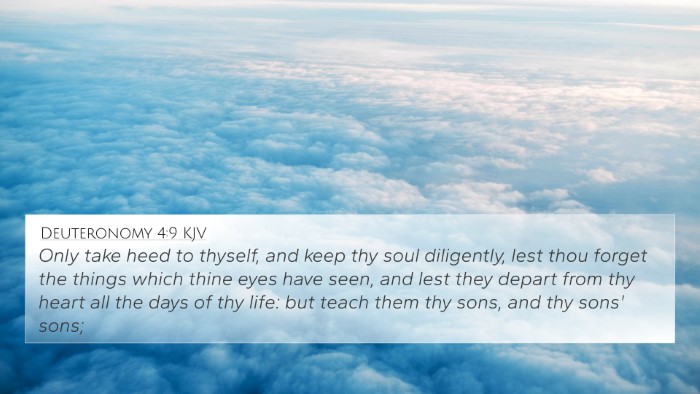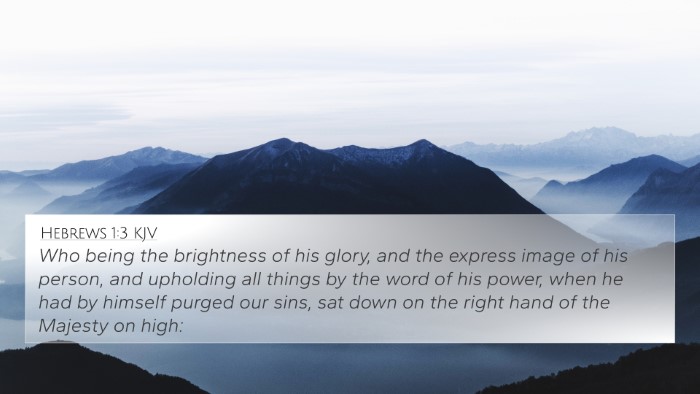Understanding Deuteronomy 4:15
Verse Reference: Deuteronomy 4:15 states, "Take ye therefore good heed unto yourselves; for ye saw no manner of similitude on the day that the Lord spake unto you in Horeb out of the midst of the fire:"
Summary of Meaning
This verse serves as a crucial reminder from Moses to the Israelites. In the wilderness, God communicated with His people from the midst of fire, displaying His awesome power but without revealing His physical form. This emphasizes the importance of taking heed, or listening carefully, to God's commandments and avoiding the creation of idols or images that could misrepresent God.
Key Insights from Public Domain Commentaries
-
Matthew Henry:
Matthew Henry emphasizes that this verse warns against idolatry, urging believers to understand the spiritual nature of God rather than trying to confine Him to a physical image. He highlights that God's speaking to His people without a visible form is an indication that He is spirit, and His ways and thoughts are higher than ours. Thus, God's unique nature necessitates fidelity to His Word alone.
-
Albert Barnes:
Albert Barnes points out the significance of 'taking good heed to yourselves,' indicating the need for self-examination and vigilance against the tendency to drift toward idol worship. He stresses that God’s truth and ways are conveyed through His Word, and believers must ensure their understanding and worship are aligned with the divine character revealed through scripture.
-
Adam Clarke:
Adam Clarke observes that this instruction serves both a protective and educational purpose. By remembering the experience at Horeb, the people are reminded of God's greatness and their responsibilities toward Him. Clarke elaborates that listening closely to God's instructions leads to wisdom and prevents the pitfalls of idolatry that marred their ancestry.
Bible Verse Cross-References
Several scripture passages can be related to Deuteronomy 4:15, providing a broader context and enhancing its understanding:
- Exodus 20:4-5: "Thou shalt not make unto thee any graven image... for I the Lord thy God am a jealous God." - This reaffirms the prohibition of idols.
- Isaiah 46:5: "To whom will ye liken me, and make me equal, and compare me, that we may be like?" - This speaks of God’s uniqueness.
- John 4:24: "God is a Spirit: and they that worship him must worship him in spirit and in truth." - A New Testament parallel emphasizing God's nature.
- Deuteronomy 5:8-10: A reiteration of the command against making images and the importance of worshiping only God.
- Acts 17:29: "Forasmuch then as we are the offspring of God, we ought not to think that the Godhead is like unto gold, or silver, or stone..." - Highlights idolatry in a New Testament context.
- Romans 1:22-23: Discusses the folly of exchanging the glory of the incorruptible God for images.
- 1 Corinthians 10:14: "Wherefore, my dearly beloved, flee from idolatry." - An exhortation against idolatry relevant for Christians.
Thematic Connections
The verse not only addresses the danger of idolatry but also touches on the themes of God's revelation, worship, and fidelity to His commandments. These themes are interconnected throughout the Bible, creating a rich tapestry of spiritual guidance for believers. By linking Bible scriptures, one can observe how the message of resisting idolatry transcends both the Old and New Testaments.
Tools for Bible Cross-Referencing
For deeper study of Deuteronomy 4:15 and its inter-Biblical dialogue, various tools are available:
- Bible Concordance: Useful for locating verses associated with specific keywords.
- Bible Cross-Reference Guide: A resource that aids in identifying related verses for thematic studies.
- Cross-Reference Bible Study: Engaging methodologies for detailed comparative analyses of scripture.
- Bible Reference Resources: Essential for comprehensive understanding and context.
Conclusion
Deuteronomy 4:15 serves as a critical reminder of God's nature, the importance of remaining vigilant in faith, and avoiding the temptation of crafting an image of God that does not reflect His true essence. Through careful study and cross-referencing with other Scriptures, individuals can deepen their understanding of this and related Bible verses, cultivating a richer relationship with God.

